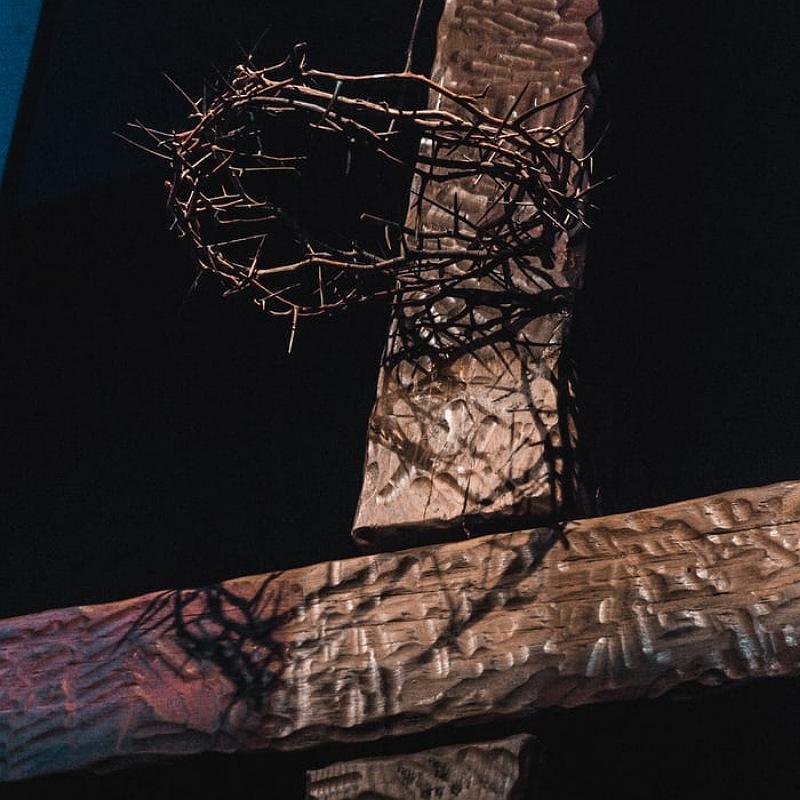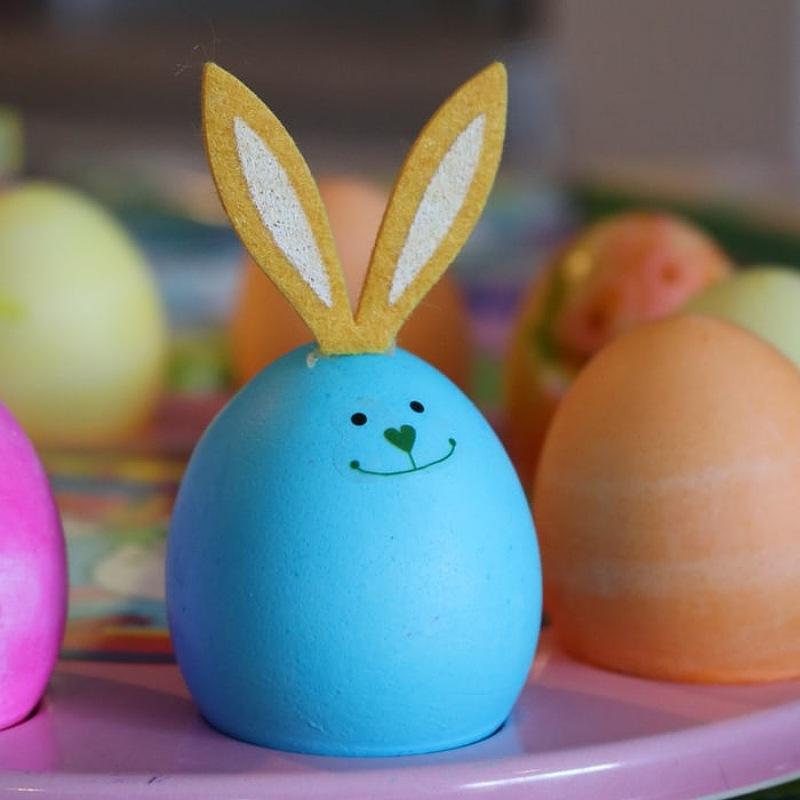Answering All Questions About Easter Celebration in Nigeria

Table of Content
- Question: What is Easter?
- Question: Why do Nigerians celebrate Easter?
- Question: How do Nigerians know when it is Easter?
- Question: Is Easter Celebration Different from other celebrations in Nigeria?
- Question: What kind of meals are prepared during Easter in Nigeria?
- Question: What should I wear on Easter Sunday (Nigerian version)?
- Question: Do Nigerians have an Easter Mascot like the Easter Bunny?
- Question: Do Nigerians prepare Easter eggs?
- Question: What is the weather like during Easter in Nigeria?
- Question: What is a controversial fact about Easter in Nigeria?
It is almost Easter again! Are you making plans to travel back to Nigeria and spend Easter with your family or you are just curious about how Nigerians spend their Easter. Every action of a Nigerian is spicy and different. There is literally no other country in the world with people like us. Before we begin answering your questions, we want to wish you a happy Easter in advance. We hope you have a wonderful time this year. Now to the questions.
Question: What is Easter?
Answer: Easter is the celebration of the resurrection of Jesus Christ. It is a Christian celebration that usually happens between the months of March and April. Celebrating Easter is celebrating the death of Jesus who laid down his life for Christians to be saved.
In Nigeria, it is the second Christian celebration after Christmas. Both adults and children look forward to it. For adults, it could mean a break from work while for children, it could mean a long school break and probably a trip to the family house in the village. Before Easter, there are usually programs advertised for children, Easter “gbedu”. Parties hosted by corporations where parents and their children come to celebrate the season.
Most churches at this time have new decorations. Palm fronds are twisted and hung around the doors. To signify an event in the Bible called the Triumphant entry. The church organizes programs and everywhere is filled with the feeling of happiness and awe at the sacrifice that Jesus made.

Question: Why Do Nigerians Celebrate Easter?
Answer: Nigeria is divided into two major religious blocs, the Christians and the Muslims Almost. This means that almost half of all the people in Nigeria look forward to and celebrate Easter. Another reason is that Nigerians who are lovers of festivities will quickly grab any opportunity to celebrate. The two or one day public holiday is a treat for hardworking Nigerians who really need the time off work.
It is also a great opportunity for family members to meet and catch up. Those who were unable to meet during the Christmas and New year celebrations meet during Easter celebrations.
Question: How do Nigerians Know When it is Easter?
Answer: Just like everyone else around the world. We wait for the clergy to do their calculations based on the lunar calendar. It is similar to the Islamic practice of marking the beginning of Ramadan.
Long before the day comes, people looking forward to it make plans. Easter dresses are bought, and sometimes food for Easter is bought and stored. This is usually the case for food items that are not perishable, illustrious Nigerians buy early, knowing that as Easter draws closer, the prices of everything will increase. Thanks to the rapid hike in prices of foodstuffs in Nigeria.
Question: Is Easter Celebration Different From other Celebrations in Nigeria?
Answer: Yes and no. Nigerians celebrate Easter in the same manner as every other Celebration. It usually includes having a nuclear and extended family gathering and eating delicious meals. Unlike other celebrations however, Nigerians usually behave pious during Easter. It is a reminder that Jesus laid down his life for theirs and for the length of the celebrations, everyone reflects on it.
On Easter Sunday, there is usually a thanksgiving service in most churches. Church members express their gratitude to Jesus through offerings, praises and worship. In some churches, the story of Jesus’ death and resurrection is acted by the drama team. After service is over, everyone goes home to continue the festivities. It is not strange to see one family following another to their house for Easter rice and chicken.

Question: What Kind of Meals are Prepared During Easter in Nigeria?
Answer: Apart from Jollof rice and pounded yam which are staple meals for celebration, other meals prepared depend on the socioeconomic situation of the family and their culture. Meals like pepper soup, amala, fufu, e.t.c are prepared. If you intend to prepare Nigerian meals for your family this Easter, here are some recipes:
Nigerian Jollof Rice
The legendary Nigerian Jollof rice is a tasty dish prepared with the most minimal ingredients but with lots of love and care taken. The ingredients must be put in just the right amounts, and at the right time, to get that party Jollof taste and aroma. Lucky for everyone, Easter falls in the rainy season which means plenty of fresh tomatoes for our mother to prepare delicious jollof.
Ingredients for Nigerian Jollof
- 750g long grain parboiled rice
- Two to three cups tomato stew
- Chicken (whole chicken, drumsticks or chicken breast)
- Pepper and salt (to taste)
- Two medium onions
- Three seasoning cubes
- One tablespoon of butter
- Two teaspoon thyme
- Two teaspoons of curry powder.
Steps to Making Nigerian Jollof Rice
- Wash and cut the whole chicken into pieces.
- Cook with spices and fry crispy.
- Rinse the rice, strain, parboil and strain again.
- Pour the chicken stock and tomato stew into a sizeable pot and leave to boil.
- Add the drained parboiled rice, curry powder, salt, and pepper to taste.
- Cover the pot and leave to cook on low to medium heat.
- Turn to ensure all spices are properly mixed.
- Add the butter.
- Leave to simmer for about five minutes.
- Serve hot!
Nigerian Pepper Soup
Nigerian pepper soup is a hot and spicy soup that everyone would love to enjoy on Easter day. It is usually prepared with a lot of protein obstructions like goat meat/fish/snail/offals/chicken or other condiments and a lot of spices. It is easy-to-prepare and a meal that is enjoyed by most. It is usually used as an appetizer that precedes the main course.
Ingredients of Nigerian Pepper Soup
- 1 pound goat meat/fish/snail/offals/chicken
- 1 teaspoon red chili
- 2 teaspoon crayfish
- 1 teaspoon ginger powder
- 1 teaspoon pepper soup spice
- 1 small onion
- Salt
- 2 teaspoon uziza leaves.
- 4 cups of water
- 1 scotch bonnet
Steps to making Nigerian Pepper Soup
- Cut the goat meat/fish/snail/offals into small pieces.
- Rinse thoroughly.
- Transfer the goat meat/fish/snail/offals into the pot.
- Add salt and seasoning.
- Add pepper/Chili pepper to taste and half of an onion (grated).
- Cook for 30 minutes (Or till it is as soft as you like it).
- Add the pepper soup spice, ginger powder or clove and the remaining grated onion and crayfish.
- Leave it to cook for another ten minutes.
- Stir in the Uziza/scent/mint leaves and let simmer for another five minutes.
- Serve.
Find more Nigerian recipes here.
Question: What Should I Wear on Easter Sunday (Nigerian version)?
Even though Easter celebrations are not as festive as Christmas and New year celebrations, Nigerians naturally love to look their best. On Easter Sunday, it is important to wear an outfit that is beautiful but not over the top. Ankara outfits are our cultural heritage and should always be encouraged. The kind of outfit you wear will also be determined by your age and gender. For women over 40, you would probably love to wear dresses like this:

For younger women who want to dress in Ankara wears, outfits like these will look great:

For men, Easter Sunday outfits could look very much like these:

After Easter Sunday, everyone goes home to eat. Most people change out of their church clothes into more comfortable house wear. Others do not for reasons like the presence of visitors in the house.

Question: Do Nigerians have an Easter Mascot like the Easter Bunny?
Answer: Yes, the Easter Mascot for Nigerians is Jesus himself. The savior himself is the focus for Easter. Nigerians are encouraged by their clergy to practice gratitude for his sacrifice during this period.

Question: Do Nigerians Prepare Easter eggs?
Answer: No, the Easter eggs practice is in close relationship with the Easter Bunny belief which is of Saxon origin. Although Nigerians became Christians through the Europeans, our tropical environment does not support the Easter Bunny belief which is rooted in the change from Winter season to Spring. The Easter Bunny in this case represents the reproductive ability of bunnies which can be likened to the growth spurt in spring. The only thing similar to that in Nigeria is the rainy season.
However, adding hard boiled eggs to a meal of rice and chicken is very common in Nigeria. Is it safe to say that any egg eaten in Easter is an Easter egg?
Question: What is The Weather Like During Easter in Nigeria?
Answer: Easter happens in the rainy season. This means the weather will be wet and humid. It also means the heat of the dry season will be far away and on days when there is no rain, the environment can feel quite serene and with mild sunshine. It is a great time for celebrations but a bad time for roads. Wise Nigerians arm themselves with an umbrella during this period.
Question: What is a Controversial Fact About Easter in Nigeria?
Answer: It is an optional celebration for some Nigerians. Not everyone thinks it is a big deal. On that day some people might not celebrate it at all. Going about their business as though it is a normal day. Others celebrate it only if they are buoyant at the time.
Conclusion
Easter is a great and festive time of the year celebrated by Nigerians with pomp. It is a time to appreciate both the sacrifice of Christ and the presence of family. At the time of writing this, all of us are looking forward to a Happy Easter filled with joy and celebration.
*Recipes from Allnigerianrecipes.com
*All images from unsplash.com
She's a beauty and an exquisite lady who enjoys the high life in writing and poetry. Her writing style and prowess is innovative and focuses on the feminine perspective, bringing nothing but wholesome gratification to the African, Afrocentric and Afro-American women at large

